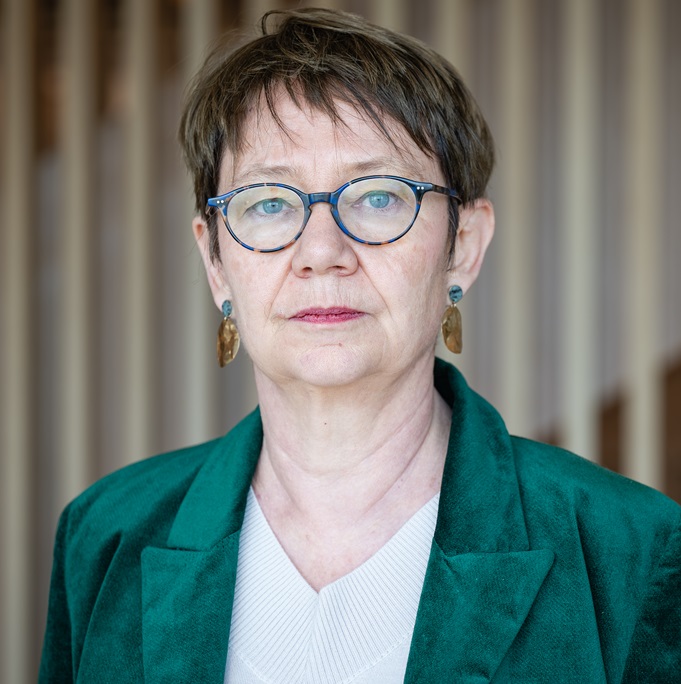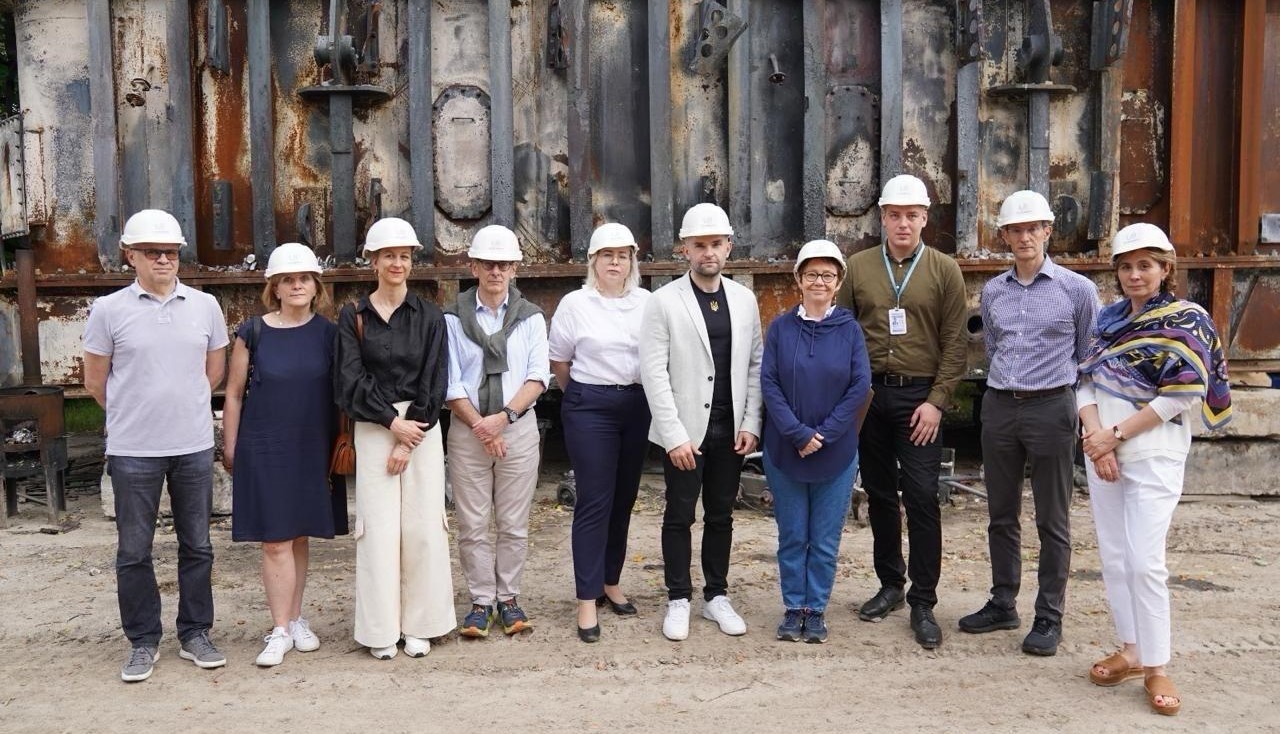These cookies cannot be disabled. They are essential for core functionality in ebrd.com to ensure a seamless and secure experience.
More than €8 billion
deployed since Russia’s invasion
€2.4 billion
deployed in 2024
€4 billion
capital increase
€2.5 billion
new funds committed by donors
Standing with Ukraine, since day one
At a critical point in Ukraine’s history, the EBRD’s support for the country is unwavering.
Our President was the first head of a Multilateral Development Bank to visit Kyiv after the full-scale war began in 2022. The EBRD is demand-driven and acted with agility following Russia’s invasion. Our key areas of focus are trade finance, energy security, vital infrastructure, food security, and private sector resilience.
Our investments are channelled into the real economy, giving Ukraine the capacity to resist Russia’s war of aggression. The healthier the economy remains in wartime, the less costly the country’s reconstruction will be.
In 2023, our governors approved a resolution to increase our paid-in capital by €4 billion to help us sustain high levels of investments both during wartime and once reconstruction begins.
Promoting stronger standards and institutions
We have worked with Ukrainian authorities to build more efficient and accountable institutions.
We have supported the changes in legislation on state-owned enterprise (SOE) corporate governance, bringing it in closer alignment with international standards such as the OECD Guidelines on the Corporate Governance of SOEs. And we assisted the government with developing a State Ownership Policy that paves the way to a more strategic and transparent management of state assets.
Over the years, the EBRD has helped advance corporate transformation and governance at several major Ukrainian SOEs, including Ukrenergo, Energoatom, Ukrposhta, and Ukraine Railways.
Select an image to expand
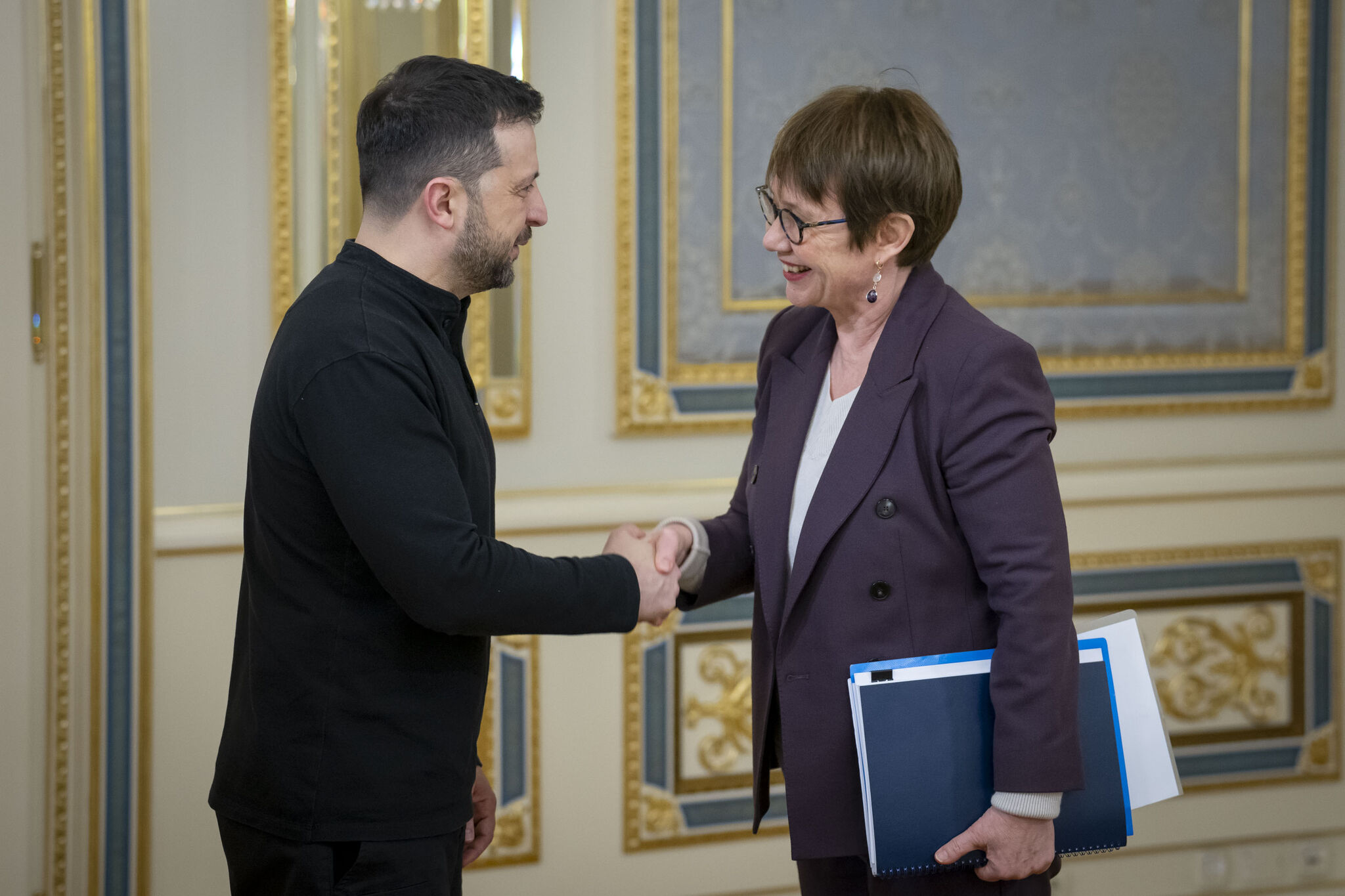
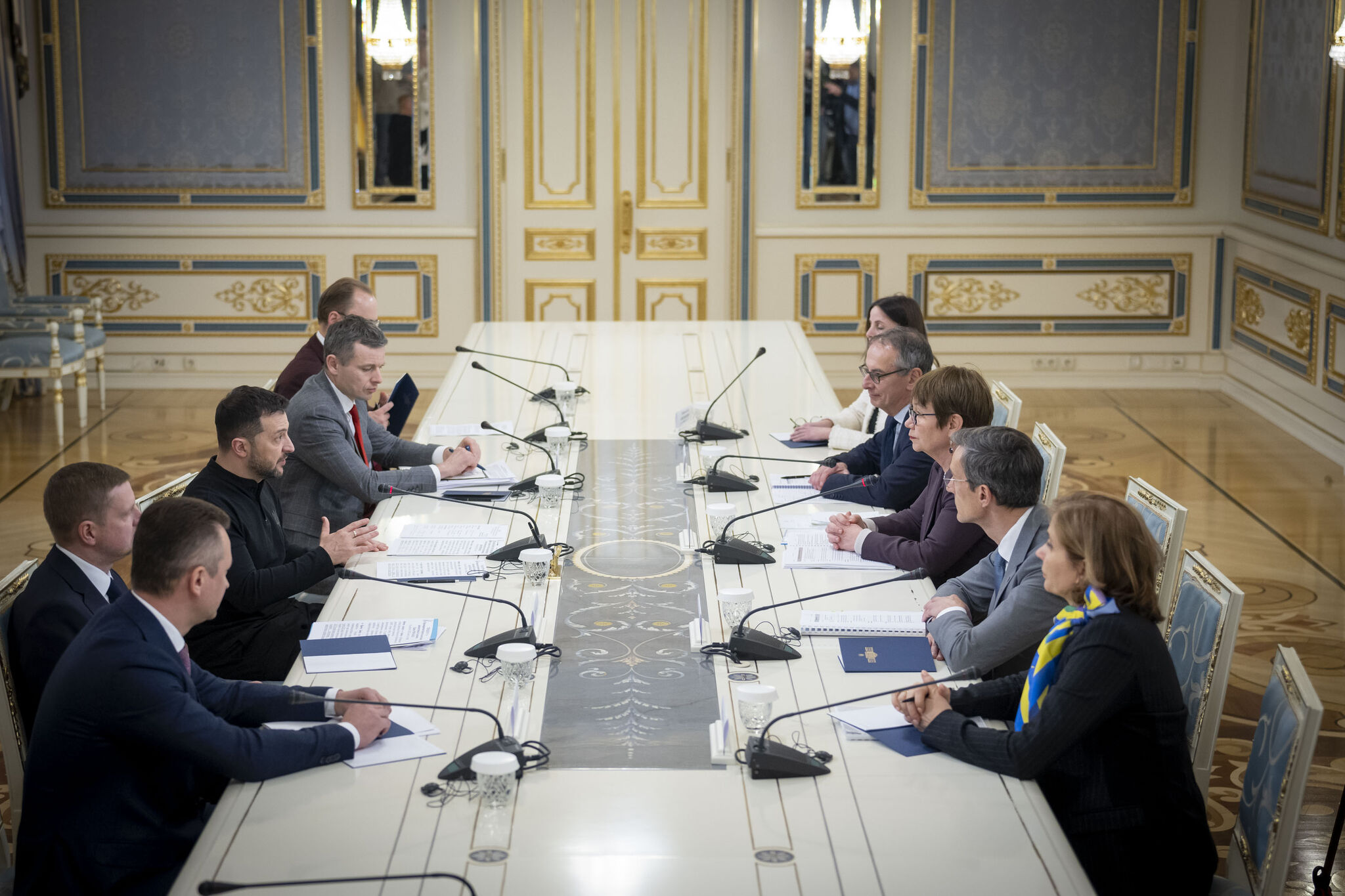
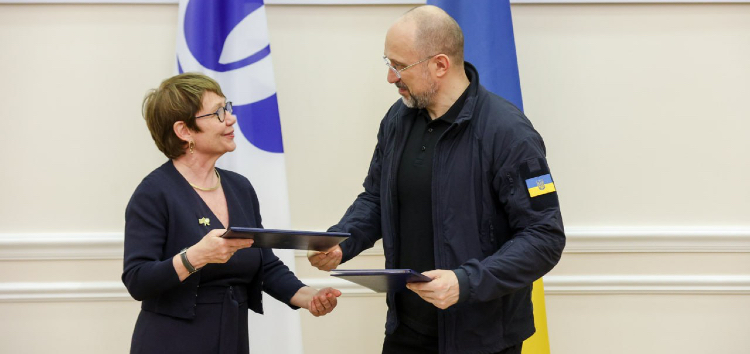
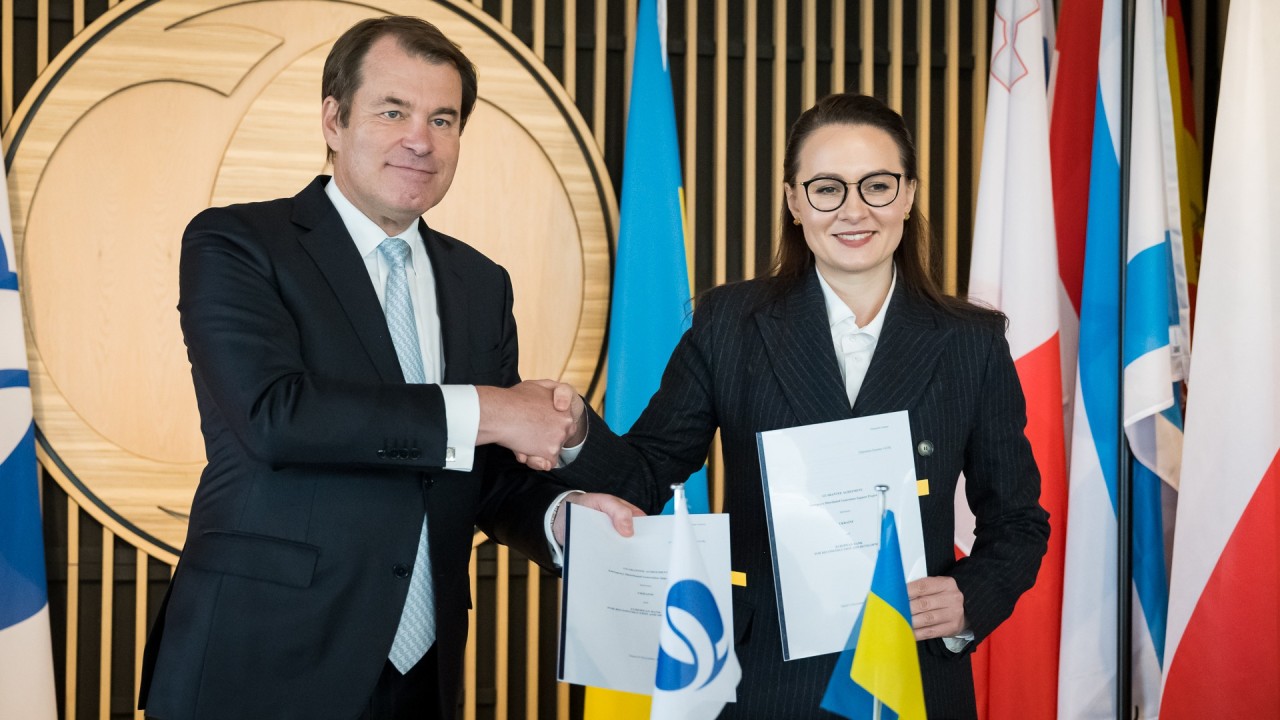
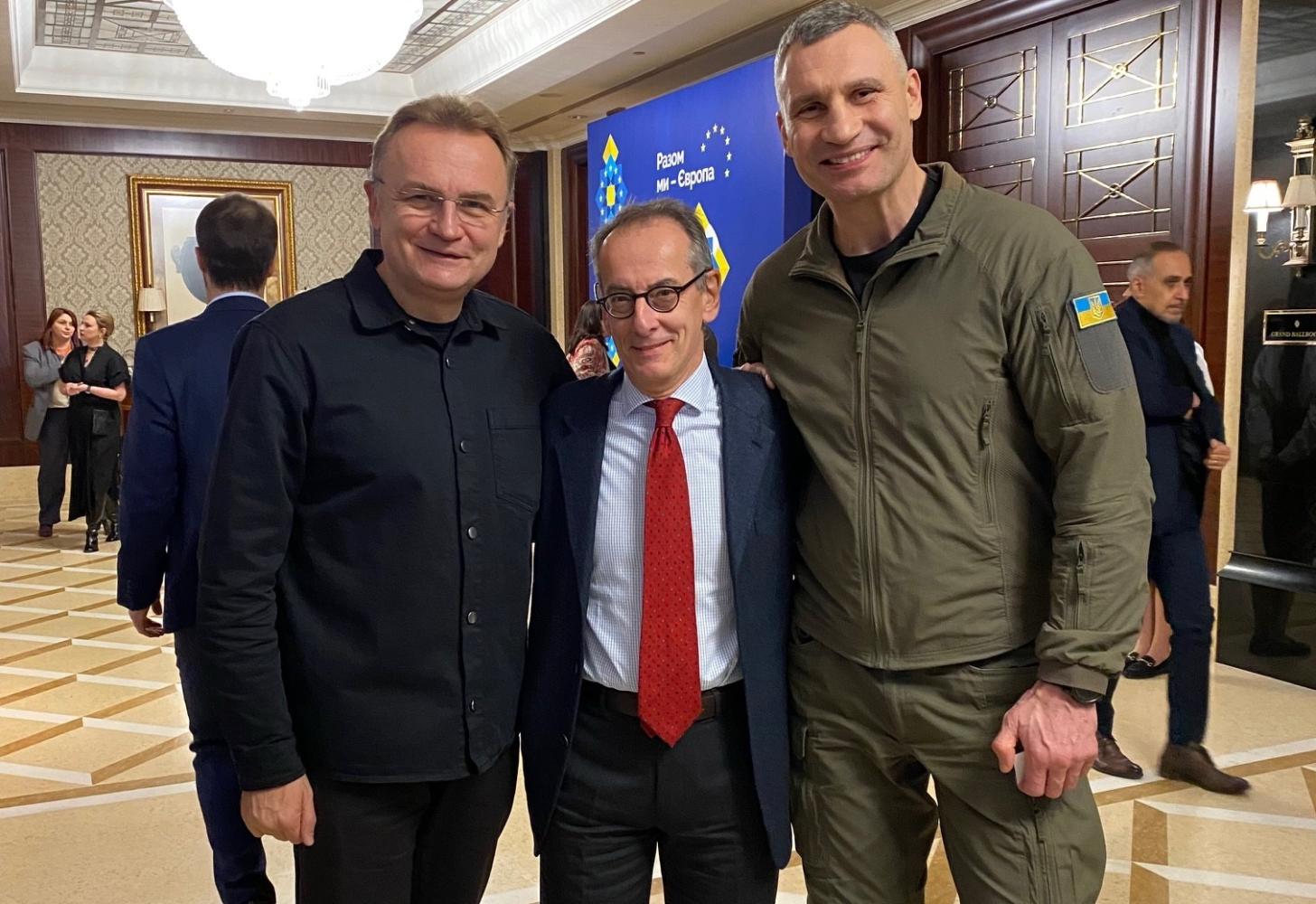
Select an image to expand
Human capital
Russia’s war of aggression continues to impose devastating harm on people's lives and livelihoods across Ukraine. Forced displacement, physical and mental injury and ongoing mobilisation have created unprecedented challenges for individuals, families, and their communities. The upheaval this causes within Ukraine’s labour market is felt acutely among EBRD’s client companies and other employers across a range of economic activities.
The EBRD’s response to the war on Ukraine thus encompasses significant support for client companies to accelerate Ukraine's human capital recovery and longer-term workforce resilience. More than three quarters of EBRD's investments in Ukraine explicitly encompass and monitor human capital impact by helping to restore people's livelihoods through new work and training opportunities, broaden access to finance for entrepreneurs and SMEs, and restore access to key services, infrastructure and goods enabling economic participation among the people and places most affected by the ongoing war. The dedicated focus on human capital recovery embedded into EBRD’s work in Ukraine remains critical under the ongoing wartime emergency and will continue delivering impact into Ukraine’s eventual peacetime and reconstruction.
Use of donor funds
Donor support is vital across the entire lifespan of EBRD’s response to the war on Ukraine. The EBRD has managed to leverage existing donor funds and platforms, while creating new innovative structures to channel support to Ukraine.
Since 2022, the Bank has reached a significant milestone in its fundraising efforts by mobilising over €2.5 billion of concessional resources committed by a wide range of donors for the Resilience Package to support Ukraine. Various financial instruments, including co-investment products such as funded guarantees and capex grants, unfunded guarantees as well as technical cooperation grants for policy and expertise, have been used across several sectors to help protect Ukraine’s economy.
Donors who committed to contribute so far are: the European Union, the United States, Norway, France, the Netherlands, Spain, Germany, Sweden, the United Kingdom, Canada, Switzerland, Japan, Italy, Denmark, Austria, Finland, Taipei China, Ireland, Latvia, Slovenia, Poland and Lithuania.
In the early stage of the war, use of donor funds enabled EBRD to be the first MDB to take on-balance sheet risk investing in Ukraine, as donors committed to 50% risk sharing.




